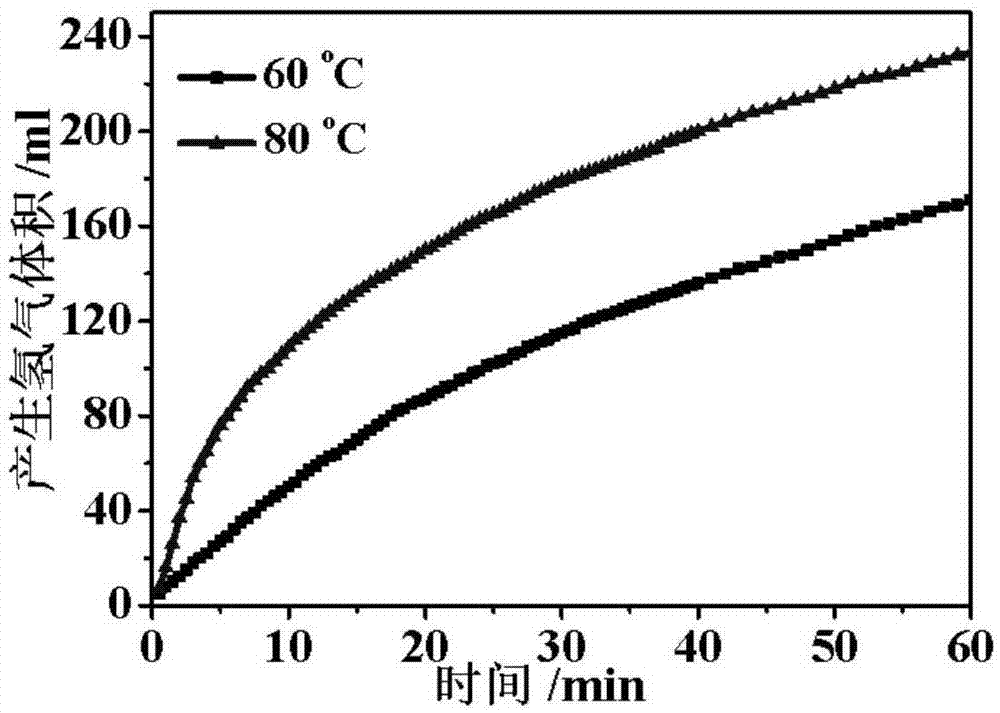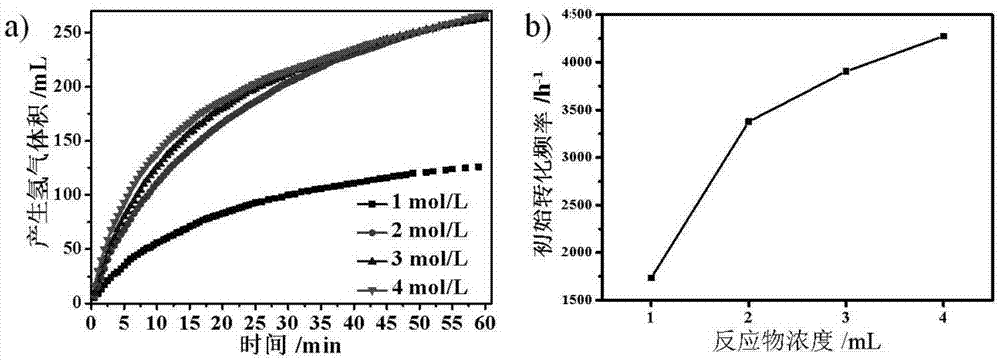Nano palladium based catalyst and preparation and application thereof
A catalyst, nano-palladium technology, applied in the direction of physical/chemical process catalysts, chemical instruments and methods, inorganic chemistry, etc., can solve the problems of lack of two-way catalysts, and achieve the effect of high industrial practical application potential
- Summary
- Abstract
- Description
- Claims
- Application Information
AI Technical Summary
Problems solved by technology
Method used
Image
Examples
Embodiment 1
[0025] Embodiment 1, Pd / NMC catalyst preparation:
[0026] At 35°C, put 3.25g of ZrOCl in a 1L beaker 2 ·8H 2O and 20.0 g of P123 were dissolved in a solution of 130 mL of 37% HCl mixed with 650 mL of water. Add 42.50g of ethyl orthosilicate and stir for 24h. Then it was left to stand under hydrothermal heat at 100°C for 24h. The precipitate was filtered, washed with a small amount of ethanol, and dried overnight at room temperature. Dry in an oven at 60°C for 12 hours. Rising at a rate of 2°C / min to 550°C for 4 hours in air to remove the P123 surfactant to obtain Zr-SBA-15. Mix 15.0g xylene, 15.0g furan methanol and 0.1g oxalic acid for later use. Weigh 14.0g of Zr-SBA-15 template into a 250mL beaker, stir with a glass rod, and add the polymer solution prepared above dropwise. Polymerize in an oven at 60°C for 24h and at 90°C for 24h to obtain a polyfuranmethanol-SBA-15 complex. The above-mentioned polyfuranmethanol-SBA-15 complex was raised to 150°C for 2 hours at a ...
Embodiment 2
[0027] Embodiment 2, the process that catalytic potassium formate decomposes and prepares hydrogen:
[0028] Step 1: First put 20 mg of catalyst into the reactor, add a certain concentration of potassium formate solution, quickly put it into a constant temperature water bath that has been heated to the required temperature, and turn on the stirring after the heat balance to continuously obtain gas.
[0029] Step 2: Quantify the obtained mixed gas through a burette.
Embodiment 3
[0030] Embodiment 3, investigate the performance of Pd / NMC catalytic potassium formate decomposition hydrogen production under different reaction temperatures:
[0031] The Pd / NMC catalyst (the mass loading of palladium is 5%, and the mass doping amount of nitrogen is 9%) is tested according to Example 2 with the Pd / NMC catalyst that embodiment 1 makes, carry out formic acid under 60 ℃ and 80 ℃ conditions respectively Potassium decomposition reaction, the solution used is 6ml 2mol / L potassium formate aqueous solution, see the reaction result figure 1 .
[0032] From figure 1 It can be seen that Pd / NMC can effectively decompose potassium formate aqueous solution at 60°C, and the initial conversion frequency is 1589h -1 . After raising the temperature to 80°C, the catalytic activity was further improved, about twice that at 60°C, and the initial switching frequency increased to 3377h -1 .
PUM
 Login to View More
Login to View More Abstract
Description
Claims
Application Information
 Login to View More
Login to View More - R&D
- Intellectual Property
- Life Sciences
- Materials
- Tech Scout
- Unparalleled Data Quality
- Higher Quality Content
- 60% Fewer Hallucinations
Browse by: Latest US Patents, China's latest patents, Technical Efficacy Thesaurus, Application Domain, Technology Topic, Popular Technical Reports.
© 2025 PatSnap. All rights reserved.Legal|Privacy policy|Modern Slavery Act Transparency Statement|Sitemap|About US| Contact US: help@patsnap.com



